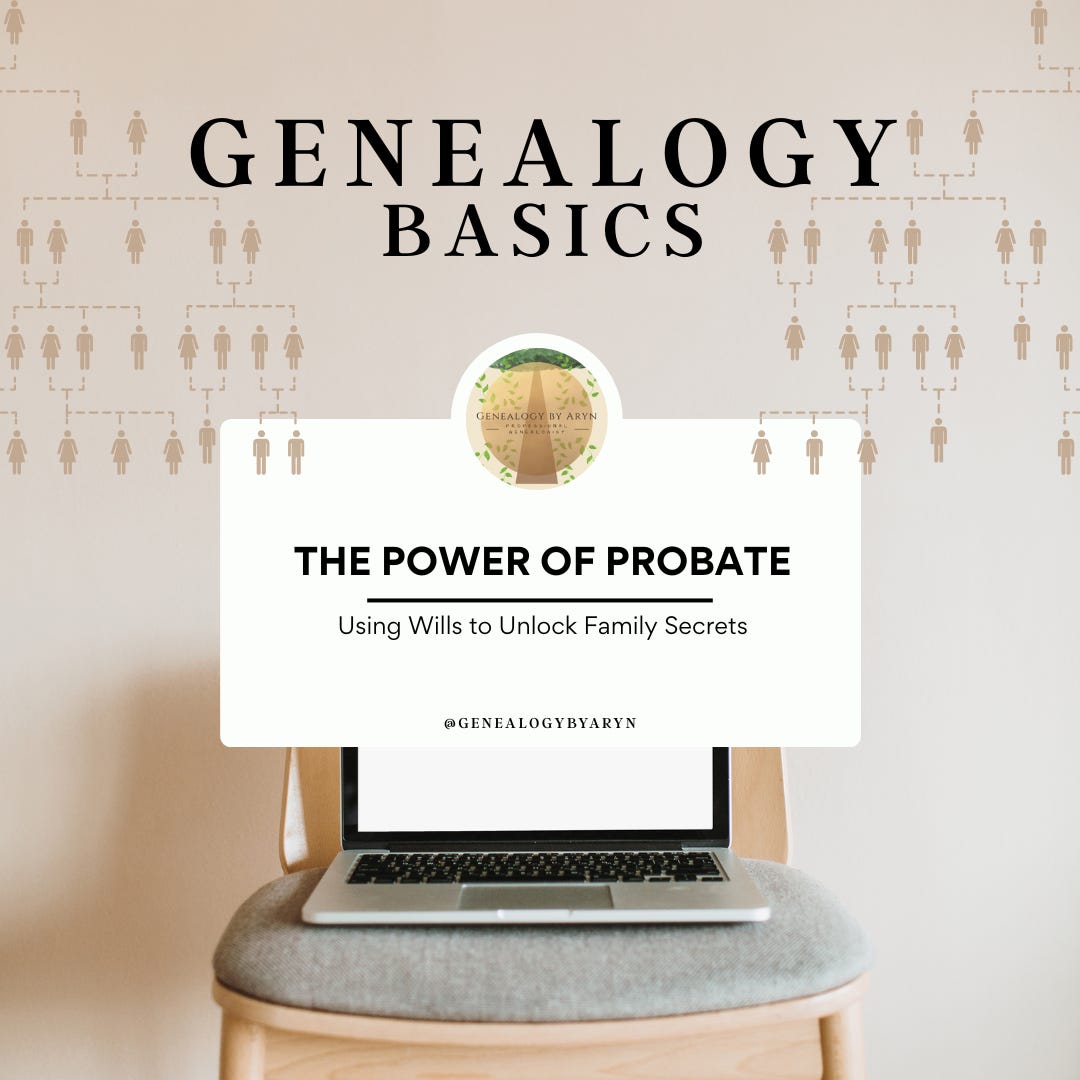When most people think about genealogy research, they immediately turn to birth certificates, marriage records, and census data. These are not a bad place to begin, but that doesn’t mean that they’re the only places to start your Family History research.
While birth, marriage, census, and of course, death certificates are undeniably valuable, there is another category of records that often gets overlooked despite being absolute goldmines of family information: Probate Records and Wills.
Probate Records, a.k.a. legal documents or files created by a probate court during the legal process of settling a deceased person's estate, can reveal intimate details about your ancestors' lives that you simply won't find anywhere else.
From family feuds and secret relationships, to cherished possessions and deeply held values, wills and probate records offer you a window into the hearts and heads of those who came before us.
Aryn is a dedicated genealogist and researcher passionate about uncovering family history and social history. She helps people connect with their heritage and explore historical narratives that shape their identities. Aryn also assists clients in using their research to craft engaging nonfiction and historical stories about their ancestors and other figures. To learn more about this Substack and my love of history, family history, and genealogy — head here! To learn more about the From Research To Novel webinar and Substack — head here.
Why Probate Records can Break the Bank for you Research
Probate records encompass all the legal documents created when someone dies and their estate needs to be settled. This includes wills, but also inventories of property, lists of debts, guardian appointments, and correspondence between family members and the court.
Here is a list of potential documents you may find:





